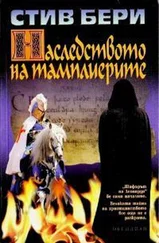One of her aides motioned and she stepped toward a memorial sculpture, a grotesque metallic representation of bodies gnarled like knots in a barbed-wire fence. A podium stood facing south. The camp would provide a backdrop for the cameras now focused on her. Usually she spoke extemporaneously, but today handwritten notes were waiting at the podium.
She approached and stood straight.
“ Guten tag. I came here today, to this place of evil, to speak my mind. My remarks will not be popular, but sometimes a person must take a path others shun.” She paused a moment. “I want to continue to lead this nation, not only forward to a glorious future, but away from a shameful past. Confronting that past, dealing with truth, is the only way, I believe, to relieve ourselves of a burden that another generation so recklessly forced upon us.” She motioned behind her. “How did this place come about? How was it possible that something this horrible could exist where farmers, for centuries, innocently tilled the soil and artists plied their trade?”
She answered her question, telling the reporters about the end of World War I and the dictates in the Treaty of Versailles that forced the closing of a local munitions factory. Afterward Dachau possessed the highest unemployment rate in Germany.
“And Hitler exploited that misfortune. He used collective despair for his own political gain. When local authorities were told in 1933 that a concentration camp would be built nearby, employing a staff of three thousand, they were elated.”
She held up a copy of the Dachauer Zeitung, the local newspaper of that time.
“The press proclaimed the event a great economic advantage. Townspeople called the camp a legitimate institution. A place where those alienated from society—communists, socialists, union leaders, clergy, and, later, Jews—could supposedly be reeducated.”
She hesitated and let her words take hold, knowing that everyone clearly knew what reeducated meant.
“Let me read something from Dachauer Zeitung, published in the June 15, 1933, edition. At 11:00 A.M. a stand-up concert took place before the concentration camp. The prisoners, closely packed behind the gate, were engrossed in listening to music from a dashing storm trooper band. Around 3:00 P.M., a strong SS detachment trailed the ringing instruments of the storm trooper band, in procession, from the concentration camp through the city to the Ziegelkeller restaurant where a big concert took place. The camp commandant was in the lead, high on horseback. It was a heart-quickening picture. ”
She stared at the crowd and cameras.
“Now, you might say those are the words of a press afraid to publish anything contrary to the Nazi Party position. And to some extent, that observation would be correct. Unfortunately, though, there is more.
“At the time there was a great contest between Dachau and the nearby villages of Prittlbach and Etzenhausen over which township would take administrative possession of the camp. Press reports speak of the taxes to be made from beer and goods sold at the camp, along with a solidifying of a relationship with the personnel.”
She hesitated again.
“And there is more. Every day from 1942 to 1945 a thousand or more prisoners marched to factories and businesses in this area as slave labor. Russian and Polish internees were routinely beaten as they made their way from the railroad station. I have read the testimony of one Polish inmate who said, All the way down Friedenstrasse we were spat upon. Some threatened us with fists and had to be pulled back by the SS. We were spat upon by women and youth, especially young males. It was terrible. ”
A few of the reporters, those who had covered her extensively over the past few months, were gazing in wonderment. She imagined what they were thinking. Never had a candidate for national office taken such an aggressive stand with the nation’s past. But she was banking on her pollster’s conclusion that the vast majority of Germans would never go back, no matter how appealing Theodor Pohl’s rhetoric may be. Standing here, at a place where thirty thousand people were meticulously slaughtered, not counting innumerable Russians and Poles who were butchered immediately upon entering, she was hoping to set herself completely apart from her opponent.
“Let me make one thing clear. I don’t want it to be said that there were not acts of kindness and defiance by decent people who recognized the horror of Dachau. There are many reports of food being smuggled to slave laborers. Even accounts of SS guards who took pity on their charges. Sadly, though, those incidents were few and far between.”
She was coming to the heart of her message. Bait for the supposed son of Martin Bormann. Danny Daniels’ earlier call had confirmed that there was indeed photographic evidence to support the accusations. Eva Braun and Martin Bormann may have parented a son.
But was it Pohl?
That remained to be seen.
She held up a copy of National-Zeitung, a 1950s extremist publication of the ultra-right DVU Party.
“In here is described the absurd account of how Allied soldiers compelled SS prisoners, after the war, to build the gas chamber and ovens here at Dachau. What exists here today, the windowless gas chamber labeled Shower Bath and four brick crematory ovens, are deemed by this account a dummy without documentary value. ”
She motioned to one of her aides who’d been standing on the far side of the memorial. The man pushed a stainless-steel cart draped in a crimson cloth toward the podium. Wheels clunked along on the rough cobbles. He stopped, slipped the cloth from the cart, then withdrew.
Stacks of books lay atop.
“These publications, in one way or the other, also deny what history has so clearly recorded.”
She reached below the podium to where a book rested. One of her staff had placed the volume there in preparation for this moment.
She held the book high.
“They are all similar to this publication. Germany Through the Ages. On these pages, concentration camps are described as necessary and the murder of Jews is characterized as merely an act of disrespect. The author likewise finds no flaw in the claim that the ovens and gas chambers here at Dachau were built by SS prisoners after the war. He also expresses doubt over whether the postwar trials of forty camp guards were fair. He claims the accusers were all professional witnesses, and the guards stood no chance since not a single defense witness could be found. That, of course, ignores the fact that ninety-four defense witnesses actually testified at the guards’ war crimes trial. The book goes on to condemn the eventual execution of twenty-eight guards as wholesale murder. ”
She lowered the book.
“This so-called account, Germany Through the Ages, and all the books stacked here before me, were published by my opponent. This is the type of fantasy from which Theodor Pohl derives profit. The type of fiction he endorses as history. This is the man who wants to lead Germany.”
She paused to grab a few quick breaths and gather her thoughts.
The gauntlet had been thrown.
A line drawn. No turning back.
“The people of this nation must ask themselves one simple question. Are you prepared to rise above the indignities our forefathers thrust upon us? To do that we have to be honest with ourselves. Denial is akin to condonation. We are a great and mighty people. Our history is one of achievement and glory. The twelve years of the Third Reich cannot, and should not, be allowed to utterly obliterate our ancient culture. That can only happen if we, as a nation, succumb to the temptation of denial and the lure of fabrication. What happened, happened. We cannot undo that fact. Nor could we ever atone, for the horror was simply too much. But what we can do is not allow our emotions to be exploited, our fears to be heightened, or our sense of well-being to be denied. Those among us who use fear and hate to lift themselves above the fray must, and should, be rejected. It is the only way to assure our future.”
Читать дальше












